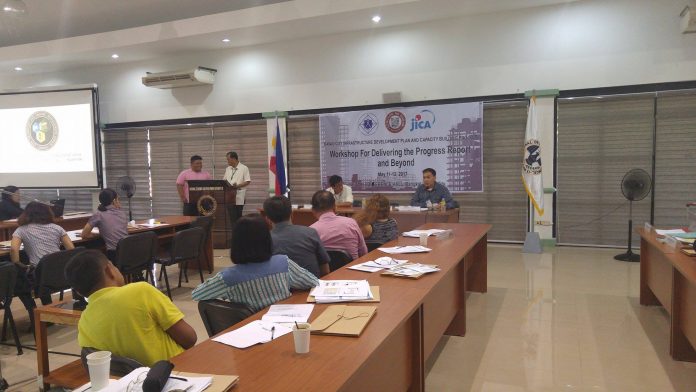
DEVELOPMENT planners of the government and their counterparts in the private sector and consultants favor “planned multiple node structure” for Davao City until 2045. Planned multiple node structure involves “controlled growth and densification of the existing urbanized area, relocation of formal settlements to disaster-safe areas; planned development of predetermined satellite urban nodes; and conservation of lands unsuitable for urban development.”
This was learned from Ivan Cortez, city planning and development officer, who made a recap of Day 1 of the workshop on delivering attended by more than 80 development planners of the city government, national agencies, the private sector, and members of the JICA (Japanese International Cooperation Agency) project team and the Japan Consular Office in Davao, May 11-12.
The participants, divided into three workshop groups, preferred multiple node structure over “guided private sector-led development” which calls for “redevelopment and revitalization of blighted areas of the existing urbanized area in partnership with private landowners and businesses; guided private sector development in areas identified as suitable for urban expansion; conservation of lands unsuitable for urban development.”
Also rejected by the workshop participants is the “business as usual” model, which means “further densification of the existing urbanized area; further horizontal extension of the urban built-up area especially along major roads; further commercial development by the private sector in prime locations, and conversion of productive agricultural land to urban uses.”
Cortez said the participants also identified a number of factors that may impact on the sustainability of urban development of the city, listing as “very important” the earthquake fault, landslide, liquefaction, lack of water supply, flooding and availability of power supply.
Visioning for the city for the year 2045, the participants pointed out that the following concerns must be addressed:
ECONOMIC CONDITIONS- Increased opportunities and access to trade and commerce; stable income; empowered MSMEs’ technology and knowledge-based economy; P1,000.day minimum wage of workers; and more processing and manufacturing industries;
SOCIAL CONDITIONS – Adequate health services, affordable housing; 100-percent literacy rate, affordable home care for elders; and good quality of life;
ENVIRONMENTAL CONDITIONS – Increased public green spaces in urban centers; clean river and water system; and more renewable energy system;
PHYSICAL CONDITIONS – Adequate health services; affordable housing; climate resilient infrastructures; performance-based infrastructures; bulk water system; and efficient/modernized transportation system;
GOVERNANCE – Responsible, efficient and accountable local government; and quality management system, etc.
In general, the workshop participants noted the need for strictly implementing existing laws as the enforcement of these laws would effectively solve a lot of development concerns. They cited as example, the numerous laws on environment which if implemented could put a stop to the build-up of informal settlers, heavy pollution of water resources, and exacerbating other social conditions like health, population explosion, solid waste and many other challenges.






